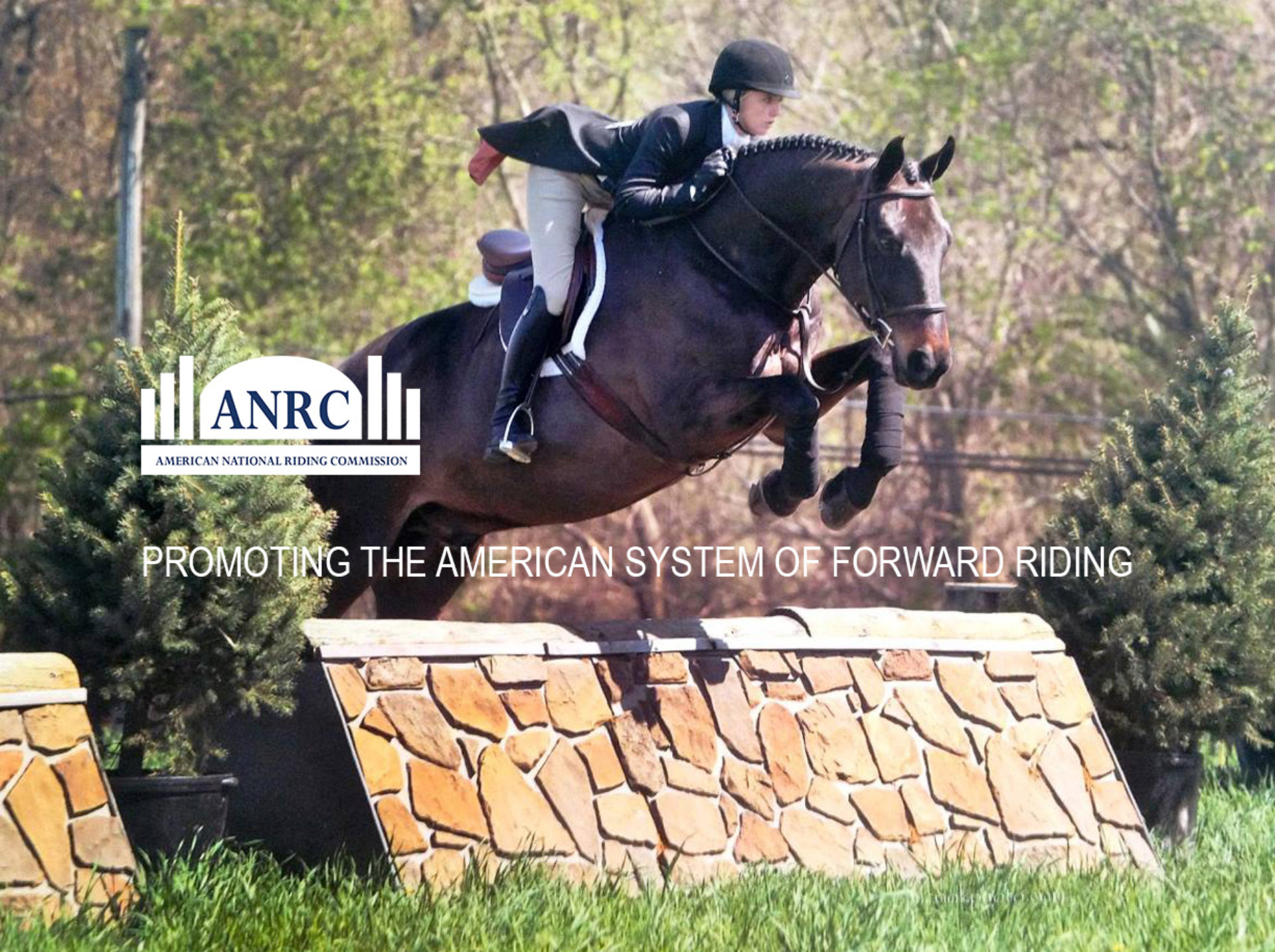2020 National Equitation Championships Overview:
The ANRC National Equitation Championships are traditionally held on the second or third week in April. The championships are an invitational competition for collegiate, junior, and adult amateur teams that pay an annual ANRC team membership fee. The championships are held the same weekend and judged separately. In each championship, teams may compete in a 3′ National Division or a 2’6 Novice Division. Participants may compete on a school-owned horse, a leased horse, or a privately owned horse.
2020 National Equitation Championships Schedule:
April 9-11 – Swan Lake Stables, Littlestown, PA
The championships begin with stabling open and teams arriving on Monday, April 6 or Tuesday, April 7. Prior to arrival, entered teams have been assigned scheduled schooling sessions in each competition area. This practice time gives coaches, riders, and horses a chance to become familiar with each venue. Informal gatherings are held in the evenings to promote camaraderie among teams. Regular coaches meetings are held to ask questions, review competition rules, and declare team riders for each division. The tentative schedule is as follows:
- April 6-7 (Monday/Tuesday) – Arrival
- April 7-9 (Tuesday/Wednesday/Thursday) – assigned schooling sessions
- April 8 (Wednesday) assigned schooling continues followed by the Written Test Phase for all competitors
- April 9 (Thursday) – Novice Division Flat Phase followed by the Novice Medal Phase
- April 10 (Friday) – National Flat Phase followed by the National Derby Phase and awards dinner
- April 11 (Saturday) – Novice Derby Phase followed by the National Medal Phase and the final awards ceremony
Championship Format:
The competition is judged and scored on equitation skills and sound horsemanship practices. The highest score in each phase will be awarded to the rider who demonstrates excellence in equitation and produces a smooth, cooperative performance exemplifying quality hunter movement both on the flat and over fences. The scores are added to produce an both individual and team standings. The four phases are described below with a sample video of each mounted phase.
- A Written test based on riding theory and a selected stable management topic worth 5% of the total score
- A Flat Phase (includes USEF Hunter Equitation Tests) worth 35% of the total score
- An Equitation Derby Course (natural jumps in a field) worth 30% of the total score
- A Hunter Seat Equitation Medal Course worth 30% of the total score
Throughout the year, coaches are encouraged to incorporate forward riding theory and sound stable management practices to improve the rider’s mounted and unmounted horsemanship skills. Students are encouraged to set personal goals as well as team goals, study ANRC materials, practice fundamentals, and apply knowledge.
The primary goal of ANRC is to promote the American System of Forward Riding. This system is based on the idea that the rider’s position or seat, control, and schooling of the horse are integral parts. The training objectives seek to develop the horse’s agility and strength under the weight of the rider, and achieve balance of the horse independently of the rider’s aids. Emphasis is placed on the rider’s ability to achieve a cooperative performance, allowing the horse to move forward freely with connected movement, while remaining calm and alert.
For more information about the ANRC National Championships, please contact Patte Zumbrun, ANRC Chair, at pzumbrun@goucher.edu
